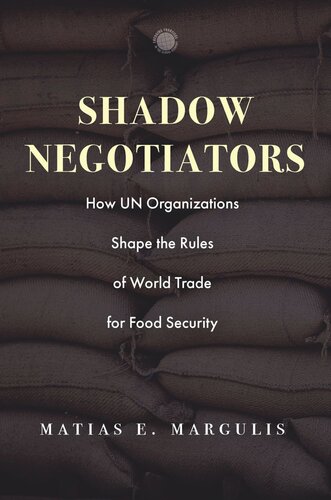

Most ebook files are in PDF format, so you can easily read them using various software such as Foxit Reader or directly on the Google Chrome browser.
Some ebook files are released by publishers in other formats such as .awz, .mobi, .epub, .fb2, etc. You may need to install specific software to read these formats on mobile/PC, such as Calibre.
Please read the tutorial at this link: https://ebookbell.com/faq
We offer FREE conversion to the popular formats you request; however, this may take some time. Therefore, right after payment, please email us, and we will try to provide the service as quickly as possible.
For some exceptional file formats or broken links (if any), please refrain from opening any disputes. Instead, email us first, and we will try to assist within a maximum of 6 hours.
EbookBell Team

4.8
104 reviewsShadow Negotiators is the first book to demonstrate that United Nations (UN) organizations have intervened to influence the discourse, agenda, and outcomes of international trade lawmaking at the World Trade Organization (WTO). While UN organizations lack a seat at the bargaining table at the WTO, Matias E. Margulis argues that these organizations have acted as "shadow negotiators" engaged in political actions intended to alter the trajectory and results of multilateral trade negotiations. He draws on analysis of one of the most contested issues in global trade politics, agricultural trade liberalization, to demonstrate interventions by four different UN organizations—the Food and Agriculture Organization (FAO), the World Food Programme (WFP), the Office of the High Commissioner for Human Rights (OHCHR), and the Special Rapporteur on the Right to Food (SRRTF).
By identifying several novel intervention strategies used by UN actors to shape the rules of global trade, this book shows that UN organizations chose to intervene in trade lawmaking not out of competition with the WTO or ideological resistance to trade liberalization, but out of concerns that specific trade rules could have negative consequences for world food security—an outcome these organizations viewed as undermining their social purpose to reduce world hunger and protect the human right to food.